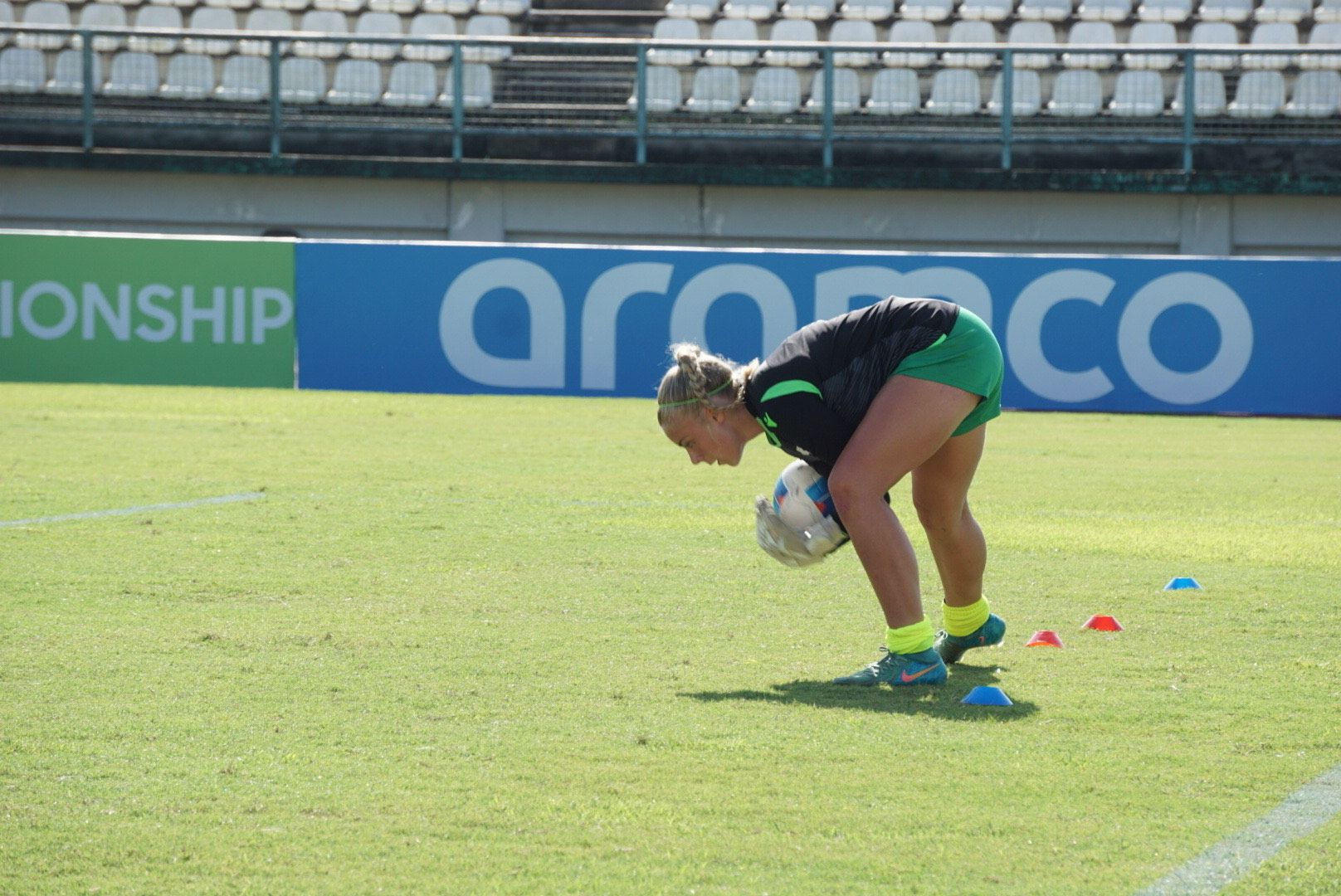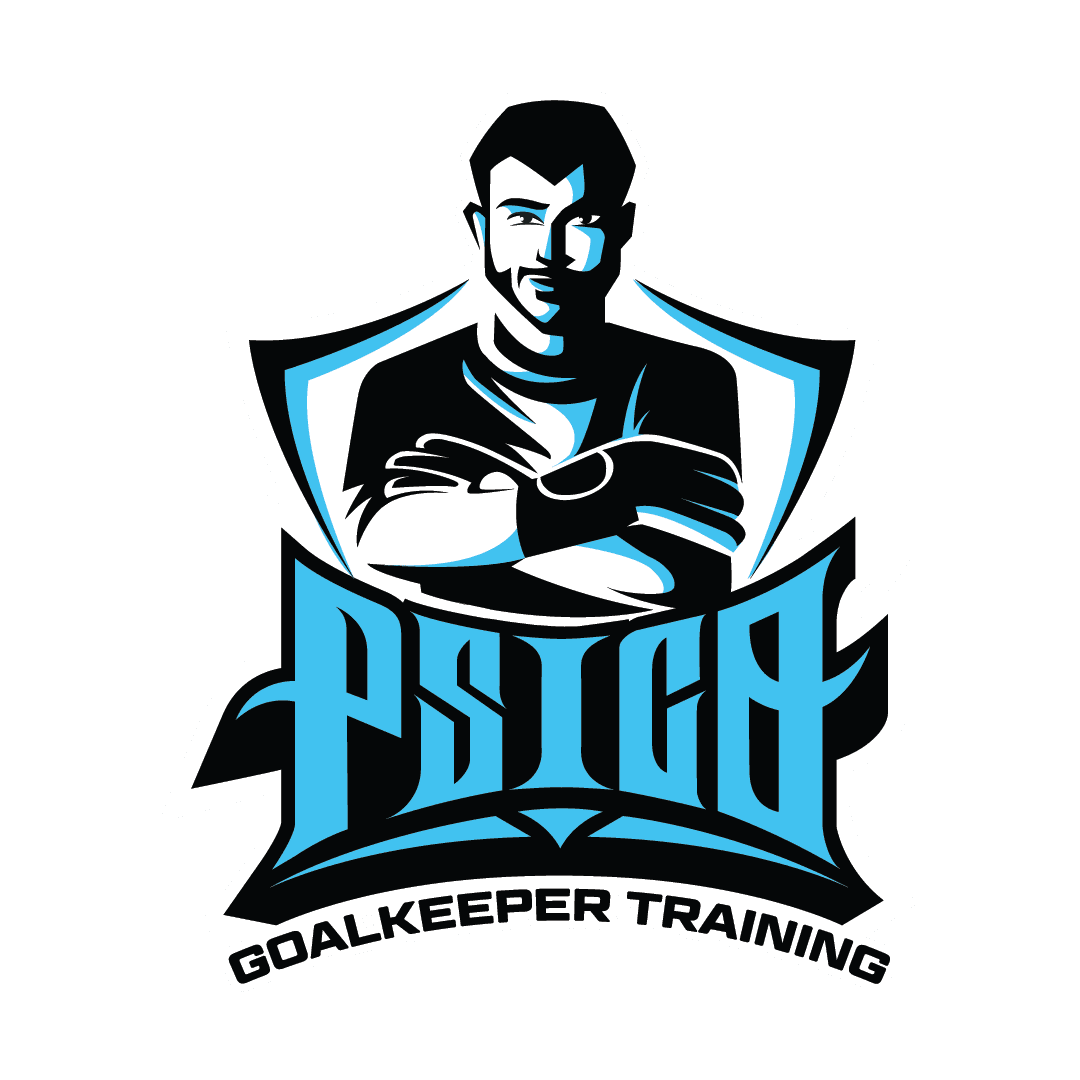The Game That Grounds Me: Soccer as My Safe Space
My name is Delilah Burns. I am a 2027 graduate and goalkeeper for Tampa Bay United SC’s 2009 Girls team in the ECNL league. For as long as I can remember, soccer has been my outlet. Growing up in a military family, I’ve moved more times than I can count, constantly adapting to new schools, new teams, and new environments. But through all that change, soccer has been my one constant—my safe space where nothing else matters. It doesn’t matter who I’m playing with, what level I’m playing at, or where I am—the game is always the same. The only two things I can control are my confidence and intensity, and that’s what I try to focus on every time I step on the field.
Of course, that’s easier said than done. There are always outside factors—pressure, expectations, and the ever-present challenges of being in a new environment. But no matter what, soccer remains my escape. When I’m in goal, I’m in control. And in a life where so much is out of my hands, that means everything.

The Challenge of Moving and Finding New Teams
Moving is hard. Finding new schools, making new friends, and adjusting to a new environment is a challenge in itself. But for an athlete, especially a goalkeeper, joining a new club team is another level of difficult. Club teams often have the same core group of girls for years. Even though new players come in, many have been together since they were kids—they know each other’s styles, they have chemistry on the field, and they have friendships off of it.
Walking into that as an outsider is tough. No matter how much research you do on a club, no matter how many practices or tryouts you attend, there’s always an adjustment period. Soccer is all about personalities. On the field, there are 11 different ones working together, and as a goalkeeper, you have to be both respected and respectful. You have to command leadership while also earning trust, and that’s hard when you’re stepping into an already well-established flow. I’m not saying it’s easier for a field player, but for a goalkeeper, whose voice and decisions dictate so much of the game, breaking into that dynamic takes time and extra effort.

The Pros and Cons of This Lifestyle
Pros:
• Exposure to different playing styles and coaching philosophies.
• Meeting new people and forming deep, meaningful friendships.
• Learning to adapt, both on and off the field.
Moving so much has forced me to grow in ways I wouldn’t have otherwise. I’ve played with so many different types of players, learned various approaches to the game, and expanded both my soccer IQ and emotional intelligence. I’ve also formed connections with people who share my love for the game, and those bonds are unbreakable.
A perfect example of this is my experience with the Dominican Republic national team. I don’t see my teammates every day—we don’t even talk all the time. But the moment we step on the field together, it’s like no time has passed. The chemistry is there because we built it fast, and that kind of connection is something special.
Cons:
• Constantly having to prove yourself again.
• Leaving behind teammates and friends.
• Never feeling like you had enough time to make the impact you wanted.
The hardest part about this lifestyle is when you finally get comfortable—when you find your flow, your team, your people—and then you have to leave. Every time I leave a team, I can’t help but think about what I could’ve done differently, how I could’ve left a bigger impact, how I might’ve taken that time for granted. And saying goodbye to teammates is never easy. No matter how many times I do it, it doesn’t get less painful.

How Soccer Became a Community Everywhere I Went
Despite the challenges, soccer has given me a community every place I’ve lived. No matter where we move, I know I’ll find my people on the field. The game connects us, even if we come from completely different backgrounds. The moment I step onto the pitch, everything else fades—where I’m from, where I’ve been, where I’m going. None of that matters. What matters is my intensity and confidence.
This experience has shaped me not just as a player, but as a person. It has forced me to step outside of my comfort zone, over and over again. Walking into a new team, into a room full of strangers who already have their chemistry and unspoken understanding, is intimidating. But I’ve learned that the only way to earn my place is to put myself out there—to communicate, to lead, to show how much I want it. Every time I’ve done that, I’ve grown. I’ve gained confidence in my voice, in my presence, in my ability to adapt.
It’s also taught me resilience. Not every transition has been easy. Some have been frustrating, overwhelming, and even lonely at first. But through it all, I’ve learned how to keep showing up, how to fight for respect, and how to lead even when I’m still finding my footing. Most importantly, I’ve learned that no matter where life takes me, I will always have a place in this sport. Soccer is more than just a game—it’s a language, a connection, and a home that follows me.
Soccer is more than a game to me—it’s my anchor. Growing up in a military family, I never had a permanent home, but I always had the game. Moving has been tough, and it’s never going to be easy, but soccer has always been there to catch me. It’s taught me to embrace new challenges, build new relationships, and trust myself in any environment.
To anyone in a similar situation, know this: every new beginning is a chance to grow. The game doesn’t change, and if you put in the work, you’ll always find your place. You are more than just the new kid—you are a player, a competitor, and someone who belongs. Keep pushing, keep believing, and most importantly, keep playing.
